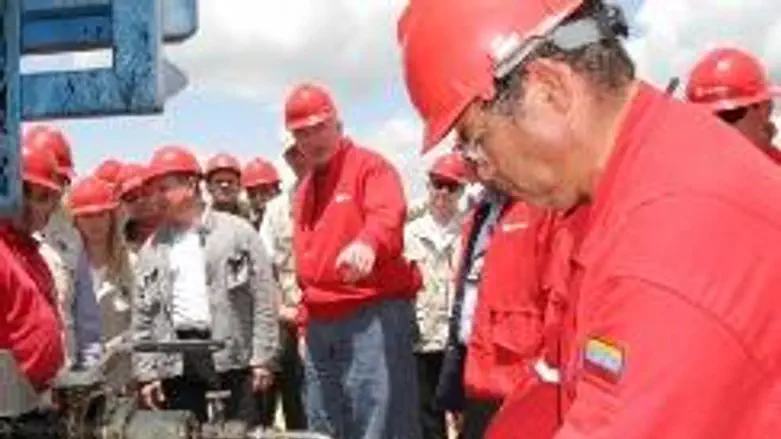
Scientists at the U.S. Geological Survey announced Friday that approximately 513 billion barrels of “technically recoverable” oil were found in the Orinoco belt region of Venezuela – twice as much as previously believed.
Outside the Middle East, the largest oil reserves in the world exist in Venezuela. The Orinoco region spans a 50,000-square-kilometer (19,305-square-mile) area in the eastern portion of the country. Nearly 20 foreign oil companies hold contracts there, according to the Latin American Herald Tribune.
The USGS estimate outstrips the best-case scenario presented by Venezuelan President Hugo Chavez, and equals about double the supplies in Saudi Arabia, which owns a proven reserve of 260 billion barrels.
Chavez, a close associate of Iranian President Mahmoud Ahmadinejad, took the opportunity last January during Israel's counterterrorism Operation Cast Lead to cut Venezuela's long-standing diplomatic ties with the Jewish State. He is also deeply critical of the United States.
Venezuelan oil geologist Gustavo Coronel, a former board member of Petroleos de Venezuela SA (PDVSA), the country’s state oil company, tried to play down the importance of the discovery. He told the Associated Press that the U.S. estimate was too high, saying, “I doubt the recovery factor could go much higher than 25 percent, and much of that oil would not be economic to produce.” PDVSA has estimated the area contains a total of 1.3 trillion barrels of oil – but only 280 billion are actually recoverable - compared with the 45% estimated as recoverable by the USGS.
The find is the first such discovery for the region. However, unlike Middle Eastern oil, which is relatively inexpensive to produce, the heavy, thick crude that was found there apparently does not flow easily.
A report published by BusinessIntelligence-Middle East pointed out that if the USGS assessment is correct, “it could have a substantial effect on the economics of oil” as well as “the geopolitics of Venezuela over the next decade.”
The U.S. government was not willing to comment on the cost-benefit ratio of the find, however. “We aren’t saying anything about the economics of the oil,” Schenk told the AP. PDVSA also declined to comment.
